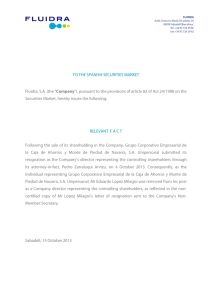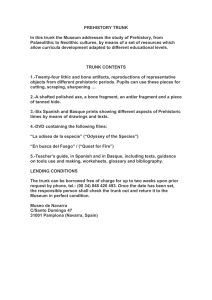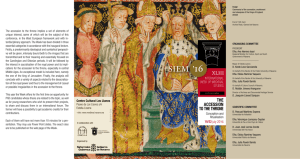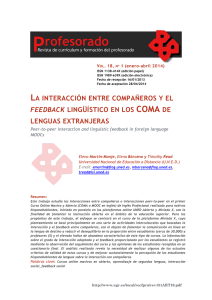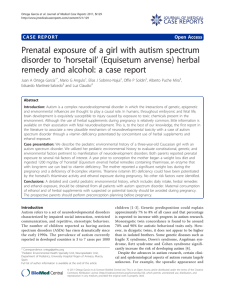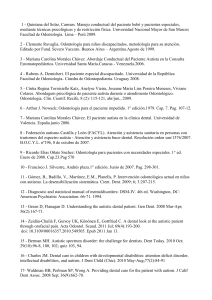A Longitudinal Study of the Psychological Characteristics of Autism
Anuncio
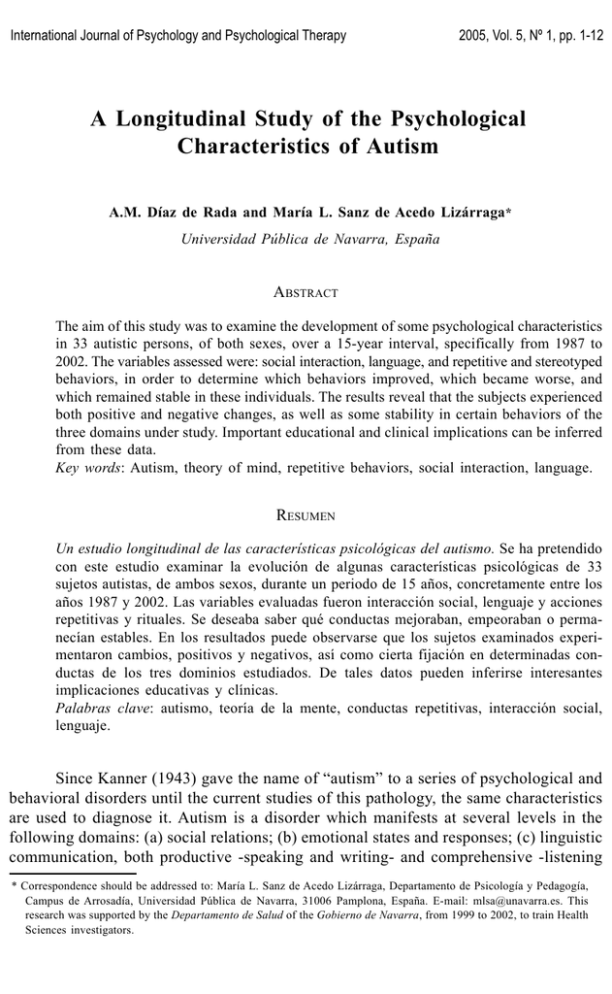
International Journal of Psychology and Psychological Therapy 2005, Vol. 5, Nº 1, pp. 1-12 A Longitudinal Study of the Psychological Characteristics of Autism A.M. Díaz de Rada and María L. Sanz de Acedo Lizárraga* Universidad Pública de Navarra, España ABSTRACT The aim of this study was to examine the development of some psychological characteristics in 33 autistic persons, of both sexes, over a 15-year interval, specifically from 1987 to 2002. The variables assessed were: social interaction, language, and repetitive and stereotyped behaviors, in order to determine which behaviors improved, which became worse, and which remained stable in these individuals. The results reveal that the subjects experienced both positive and negative changes, as well as some stability in certain behaviors of the three domains under study. Important educational and clinical implications can be inferred from these data. Key words: Autism, theory of mind, repetitive behaviors, social interaction, language. RESUMEN Un estudio longitudinal de las características psicológicas del autismo. Se ha pretendido con este estudio examinar la evolución de algunas características psicológicas de 33 sujetos autistas, de ambos sexos, durante un periodo de 15 años, concretamente entre los años 1987 y 2002. Las variables evaluadas fueron interacción social, lenguaje y acciones repetitivas y rituales. Se deseaba saber qué conductas mejoraban, empeoraban o permanecían estables. En los resultados puede observarse que los sujetos examinados experimentaron cambios, positivos y negativos, así como cierta fijación en determinadas conductas de los tres dominios estudiados. De tales datos pueden inferirse interesantes implicaciones educativas y clínicas. Palabras clave: autismo, teoría de la mente, conductas repetitivas, interacción social, lenguaje. Since Kanner (1943) gave the name of “autism” to a series of psychological and behavioral disorders until the current studies of this pathology, the same characteristics are used to diagnose it. Autism is a disorder which manifests at several levels in the following domains: (a) social relations; (b) emotional states and responses; (c) linguistic communication, both productive -speaking and writing- and comprehensive -listening * Correspondence should be addressed to: María L. Sanz de Acedo Lizárraga, Departamento de Psicología y Pedagogía, Campus de Arrosadía, Universidad Pública de Navarra, 31006 Pamplona, España. E-mail: mlsa@unavarra.es. This research was supported by the Departamento de Salud of the Gobierno de Navarra, from 1999 to 2002, to train Health Sciences investigators.

